The UAB Heersink School of Medicine Office of Research introduces new faculty for Summer and Fall 2022. Please join Heersink School of Medicine and the Office of Research in welcoming these new faculty.
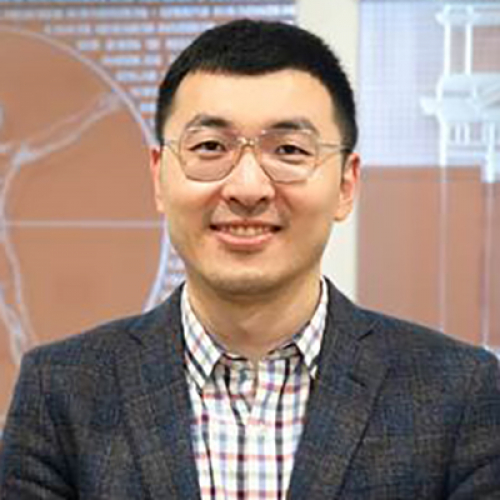
Fengbin “Jerry” Wang, Ph.D., Department of Biochemistry & Molecular Genetics
Fengbin “Jerry” Wang, Ph.D., joined the Department of Biochemistry & Molecular Genetics as an Assistant Professor on Aug. 15.
Wang completed his B.Sc. in Biosciences at Fudan University in 2010, under the supervision of George Phillips, Jr., M.D., and later relocated with his mentor to Rice University, where he received his Ph.D. in 2016. He did his postdoctoral training in Ed Egelman’s lab, working on cryo-EM of microbial appendages and EM-based design of self-assembling nanotubes. In 2021, he received a prestigious NIH K99/R00 Pathway to Independence Award.
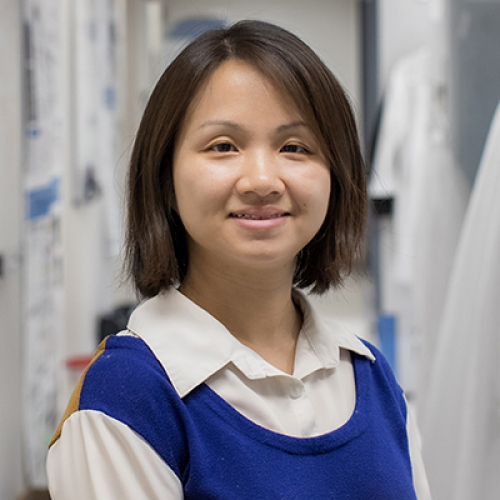
Holly Chen, Ph.D., Department of Cell, Developmental, and Integrative Biology
Holly Chen, Ph.D., joined the Department of Cell, Developmental, and Integrative Biology as an Assistant Professor on Aug. 1.
Chen obtained her Ph.D. in Chemical Pathology from the Chinese University of Hong Kong. During her postdoctoral training at the National Eye Institute, National Institutes of Health, she used patient pluripotent stem cell-derived organoid systems to model inherited retinal degeneration and to evaluate gene therapy and small molecule drugs. Her research at UAB focuses on the molecular mechanisms of primary cilium defects in various tissues for therapeutic purposes.
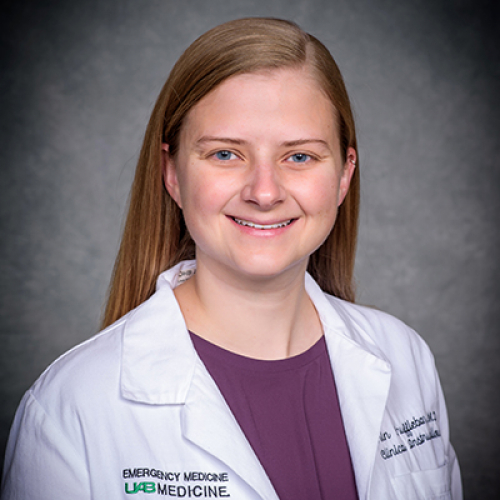
Erin Shufflebarger, M.D., Department of Emergency Medicine
Erin Shufflebarger, M.D., joined the Department of Emergency Medicine as an Assistant Professor on July 1.
Shufflebarger earned a B.S. from Davidson College in 2013, followed by an M.D. in 2017 from UAB. She stayed at UAB to complete a residency in emergency medicine, where she served as Chief Resident. Following residency, she completed simultaneous fellowships in global health/international emergency medicine, social emergency medicine and population health, and the StrokeNet fellowship. She is currently an MSPH in Health Outcomes Research candidate at UAB.
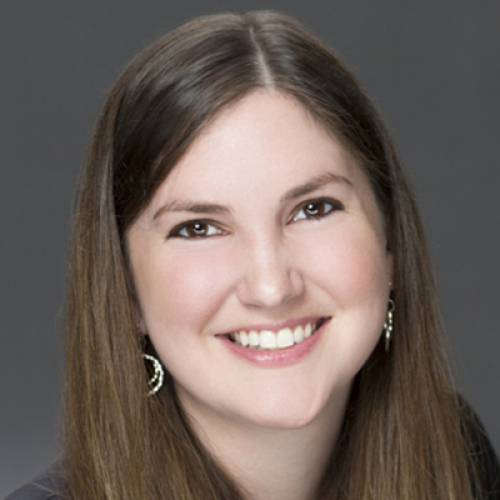
Rachel Skains, M.D., MSPH, Department of Emergency Medicine
Rachel Skains, M.D., MSPH, joined the Department of Emergency Medicine as an Assistant Professor on July 1 and holds a joint faculty at the Birmingham VA Medical Center.
Skains earned a B.S. in Neuroscience from Washington and Lee University in 2010 and an M.D. from the Wake Forest School of Medicine in 2016. She came to UAB to complete an emergency medicine residency in 2016. She stayed in the department as a clinical research fellow and an AHRQ NRSA T32 postdoctoral fellow. She also completed an MSPH in Clinical and Translational Science during this time. She currently serves as an Associate Scientist in UAB’s Integrative Center for Aging Research and as a Fellow Board Member for the American College of Emergency Physicians’ Geriatric Emergency Medicine Section.
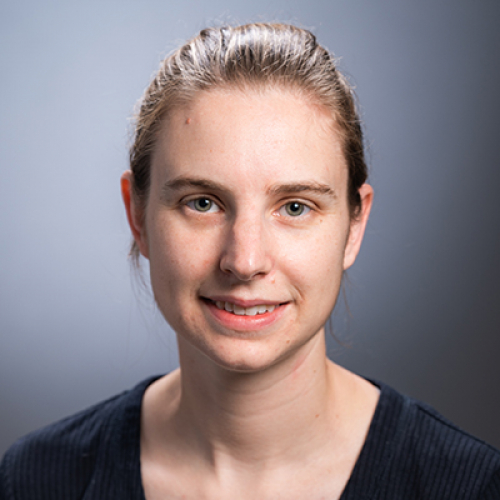
Stacy Marshall, M.D., Department of Emergency Medicine
Stacy Marshall, M.D., joined the Department of Emergency Medicine as a Medical Toxicologist and an Assistant Professor on Aug. 15.
Marshall earned a B.S. in Environmental Health from Colorado State University and an M.D. from the Wake Forest School of Medicine. She went on to complete an emergency medicine residency at Cooper University Hospital in Camden, New Jersey, before completing a fellowship in medical toxicology at the University of California Davis Medical Center in July 2022. In 2014, Marshall was awarded the Albert Schweitzer Fellowship at the Wake Forest School of Medicine and remains a Fellow for Life for the Albert Schweitzer Foundation. She serves as a member of the American College of Medical Toxicology, the American Academy of Clinical Toxicology, and the American College of Emergency Physicians.

Jia Xu, Ph.D., Department of Genetics
Jia Xu, Ph.D., joined the Department of Genetics as an Assistant Professor on Sept. 1.
Xu received his Ph.D. from the University of Texas Health Sciences Center at Houston and his M.D. from Anderson Cancer Center, supported by a DoD Breast Cancer Predoctoral Fellowship. He completed a postdoctoral fellowship at the Icahn School of Medicine at Mount Sinai, supported by an NIH T32 training grant and Leo and Julia Forchheimer Foundation.
He is now leading a research group investigating how oncogenic signaling pathways regulate mitosis programs and cancer development and exploring new therapeutic strategies for targeting cancer aneuploidy and chromosome instability (CIN). Additionally, he has a long-term interest in translating basic research findings into clinical application to develop novel targeted therapies (PROTAC), gene therapies based on Adeno-associated virus (AAV) vector-mediated gene delivery, and immunotherapies.
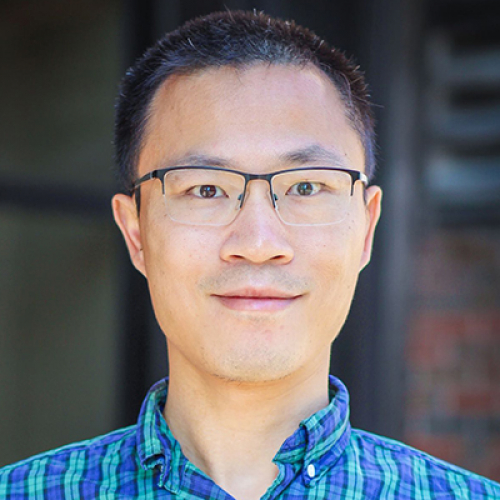
Chen Huang, Ph.D., Department of Genetics
Chen Huang, Ph.D., joined the Department of Genetics as an Assistant Professor on Sept. 1.
Huang comes from a multidisciplinary training background. He obtained his Ph.D. in Developmental Biology from Vanderbilt University. For his Ph.D. research, he combined high-throughput RNA-seq and wet-lab experimental approaches to characterize signaling pathways involved in insulin-producing beta cell differentiation and maturation. Huang then completed postdoctoral training in Cancer Bioinformatics at the Baylor College of Medicine, where he focused on computational innovation to understand tumor genomic abnormalities by integrating proteomic characterizations.
By closely collaborating with a team of cancer biologists and medical oncologists, he led several cooperative research projects, which provided significant proteogenomic insights into tumor biology and therapeutic improvement. Huang seeks to apply his background in biology and data sciences to drive cancer translational research opportunities with a focus on proteogenomics-based tumor systems biology.
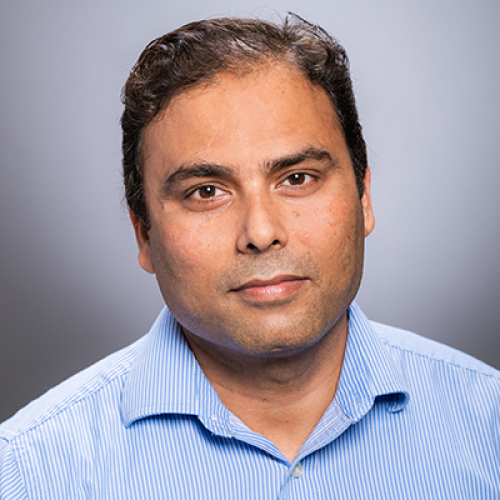
Tousif Sultan, M.D., Department of Medicine
Tousif Sultan, M.D., joined the Department of Medicine, Division of Cardiovascular Disease, as an Instructor on July 1.
Sultan’s work focuses on the roles of specific genes in the pathogenesis of heart hypertrophy and failure. His current research focuses on the role of HIPK2 in regulating fibrosis and myocardial inflammation. To elucidate the underlying mechanisms, Sultan is employing several mouse models that allow cardiomyocytes and cardiac fibroblast-specific deletion of HIPK2 in the adult heart to examine the role played by the kinase in cardiac dysfunction. His research may open exciting new directions to better understand the role of inflammation in cardiac illness. Sultan has been funded by an AHA-CDA grant.

Lesley Jackson, M.D., Department of Medicine
Lesley Jackson, M.D., joined the Department of Medicine, Division of Clinical Immunology and Rheumatology, as an Instructor on July 1.
Jackson joined the faculty of the Division of Clinical Immunology and Rheumatology after completing her fellowship with the Division. She previously completed a Global Health Fellowship at the Beth Israel Deaconess Medical Center at Harvard Medical School in conjunction with the Botswana Harvard AIDS Institute Partnership, where she spent six months in Botswana and contributed to several quality improvement projects. She currently serves on the ACR committee on Global Health and was recognized in 2021 as a Distinguished Fellow of the American College of Rheumatology.
She was selected for the T32 Training Program in Rheumatic and Musculoskeletal Disease Research. She is currently completing her MSPH program through the UAB School of Public Health, focusing on Applied Epidemiology. Over the last 18 months, she has conducted mentored research in the development of a gout behavioral intervention, and her growing interests are focused on addressing health disparities with telehealth modalities in rheumatology care and vaccine hesitancy among patients with rheumatic and musculoskeletal diseases. She was recently awarded a Walter B. Frommeyer Jr. Fellowship in Investigative Medicine for this work.
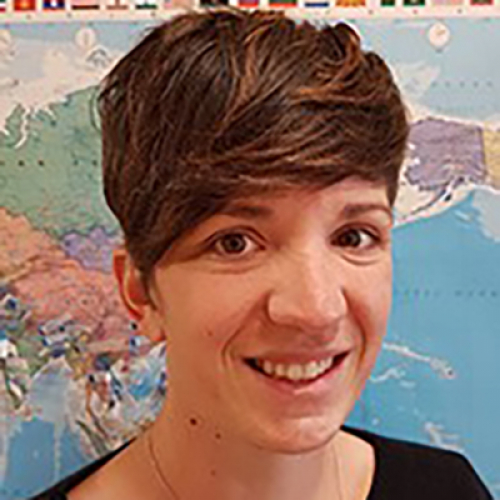
Megan Leask, Ph.D. Department of Medicine
Megan Leask, Ph.D., joined the Department of Medicine, Division of Clinical Immunology and Rheumatology, as an Instructor on Aug. 1.
Leask joined the Division of Clinical Immunology and Rheumatology in March 2021 and was promoted to faculty in August. Leask’s research focuses on the genetics of gout and other complex diseases, genomics, and bioinformatics. Her specialties include the identification of GWAS-linked eQTL and meQTL and using molecular tools developed in the model organism Zebrafish to translate these QTL into biology.
In 2015 she served as a Postdoctoral Fellow at the University of Otago, where she translated non-coding signals of association with urate (a prerequisite for gout) into biology, assigning regulatory function and identifying candidate causal genes that underly urate associations. Leask’s research at UAB has centered on translating non-coding associations identified in an extremely large GWAS in gout (120K cases, 2.5M controls) and has identified 100s of eQTL and meQTL that are linked to gout, some of which are differentially expressed between gout cases and controls.

Rouhin Sen, M.D., Department of Medicine
Rouhin Sen, M.D., joined the Department of Medicine, Division of Clinical Immunology and Rheumatology, as an Assistant Professor on Aug. 1.
Sen joined the Division of Clinical Immunology and Rheumatology in August after completing his fellowship at the University of Colorado and Rocky Mountain Veteran Affairs Hospital. Sen recently completed his fellowship and Clinical Sciences graduate program at the Colorado Clinical and Translational Sciences Institute, where Liron Caplan, M.D., Ph.D. mentored him.
During his time at UC/RMVA, Sen worked with the VA Program to Understand the Long-term Outcomes in Spondyloarthritis (PULSAR) Registry to identify simple and readily available biomarkers routinely collected for clinical care and evaluate association with patient-reported outcomes and imaging outcomes. Sen’s clinical and research interest focus on rheumatoid arthritis, crystalline arthropathies, vasculitis, myositis, and seronegative spondyloarthropathies.
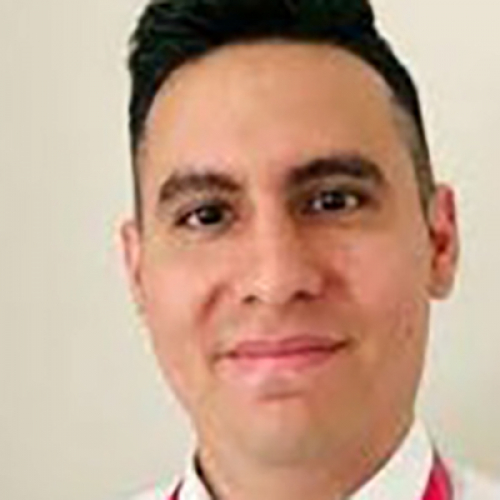
Jose Rubio Mosquera, M.D., Department of Medicine
Jose Rubio Mosquera, M.D., joined the Department of Medicine, Division of Clinical and Rheumatology, as an Assistant Professor on Aug. 1.
Mosquera joined the Division of Clinical Immunology and Rheumatology in August after completing his fellowship at Beth Israel Deaconess Medical Center. Mosquera is a former Chief Medical Resident at Tufts University School of Medicine and has clinical and research interests focused on improving outcomes for SLE patients.
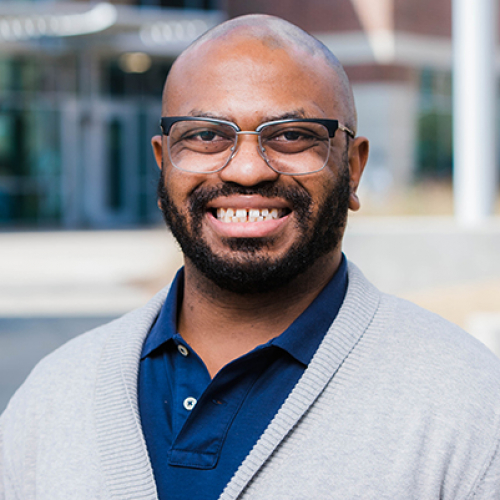
Ray Jones, Ph.D., Department of Medicine
Ray Jones, Ph.D., joined the Department of Medicine, Division of Gerontology, Geriatrics, and Palliative Care, as an Assistant Professor on July 1.
Ray Jones received a Ph.D. in Kinesiology and Exercise Physiology from the University of Southern Mississippi in before completing his postdoctoral training in the UAB’s Department of Medicine-Division of Gerontology, Geriatrics, and Palliative Care. Jones has published on vascular health, function, and lifestyle behaviors, specifically understanding the heart-brain relationship.
Jones’s research interests include aging, vascular function, minority health, health disparities, physical activity, and HIV. Jones has active projects on HIV and Aging, including his UAB K12 Career Development Award entitled: “Central Vascular Implications in Neurocognitive Functioning among Older Adults with HIV.” He holds memberships in the American College of Sports Medicine, the American Heart Association, and the Gerontological Society of America.
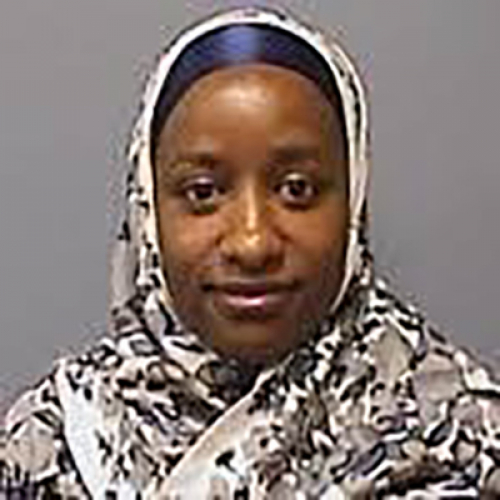
Najibah Galadanci, Ph.D., MBBS, MPH, Department of Medicine
Najibah Galadanci, Ph.D., MBBS, MPH, joined the Department of Medicine, Division of Hematology-Oncology, as an Assistant Professor on Sept. 1.
As a hematologist and epidemiologist, Galadanci is dedicated to improving the care of children and adults with sickle cell disease (SCD). Specifically, she supports efforts to close the existing gaps in implementing evidence-based standard-of-care practices in both high- and low-income settings for children suffering from SCD. Her research has focused on investigating the brain and cardiopulmonary complications in children with SCD. Currently, she is evaluating the newborn screening follow-up programs to identify strategies to improve the initial follow-up and care engagement for infants with SCD.
Galadanci completed her Ph.D. in Epidemiology at the UAB School of Public Health and was recently a postdoctoral fellow at the Division of Hematology-Oncology. Before moving to UAB, Galadanci obtained her clinical doctorate in northern Nigeria, where she also completed her residency and fellowship training in hematology. She also completed her MPH at Vanderbilt University.
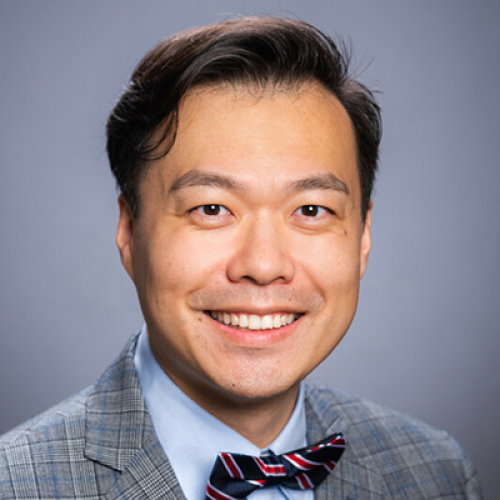
Yan Lu, M.D., Department of Medicine
Yan Lu, M.D., joined the Department of Medicine, Division of Nephrology, as an Assistant Professor on July 1.
Lu received his M.D. from Tianjin Medical University and completed a Nephrology fellowship here at UAB. In addition, he served as a Postdoctoral Fellow on the T32 training grant for Interdisciplinary Training in Kidney Related Research. His interest is in metabolism in the pathogenesis of acute and chronic kidney disease.
Lu was recruited to the Division of Nephrology in July as an Assistant Professor of Medicine and was awarded the DOM Walter B. Frommeyer, Jr. Fellowship in Investigative Medicine.
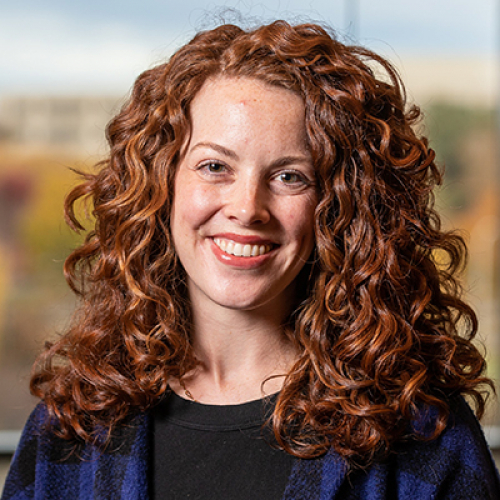
Courtney Williams, DrPH, Department of Medicine
Courtney Williams, DrPH, joined the Department of Medicine, Division of Preventive Medicine, as an Assistant Professor on July 1.
Williams is a health services researcher focused on understanding cancer-related affordability and care access issues. She is especially interested in financial toxicity and its associations with treatment decision-making, clinical trial participation, and rural patient populations. She was recruited jointly by the Division of Preventive Medicine and the O’Neal Comprehensive Cancer Center.
Williams comes to UAB from the National Cancer Institute in Rockville, Md., where she was a Cancer Prevention Postdoctoral Fellow in the Healthcare Delivery Research Program. She completed her DrPH in Healthcare Organization and Policy and MPH in Epidemiology from the UAB School of Public Health. During and before receiving her doctorate, Williams worked as a research statistician in the UAB Medicine Divisions of Hematology & Oncology and Gerontology, Geriatrics, & Palliative Care.
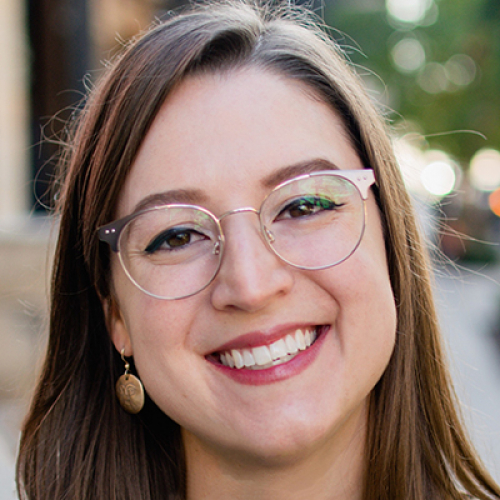
Julianna Bailey, Ph.D., RD, LD, Department of Medicine
Julianna Bailey, Ph.D., joined the Department of Medicine, Division of Pulmonary, Allergy, and Critical Care, as an Instructor on July 1.
Bailey received a B.S. in Nutrition and Food Science from Auburn University. She then completed her dietetic internship, M.S. in Clinical Nutrition, and her Ph.D. in Health Education and Promotion at UAB. Bailey currently serves as the Registered Dietitian for the UAB Adult Cystic Fibrosis Program. Her current research focuses on the impact of CFTR modulator therapy on nutrition and metabolic outcomes in adults with cystic fibrosis. Bailey’s research interests include body composition and the emergence of obesity in CF, personalized behavioral interventions to improve nutritional status in individuals with CF, and exploring health disparities and social determinants of health in the CF population.
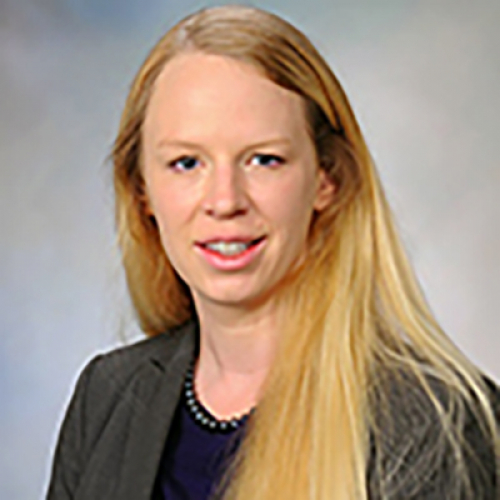
Sarah Robison, M.D., Department of Medicine
Sarah Robison, M.D., joined the Department of Medicine, Division of Pulmonary, Allergy, and Critical Care, as an Assistant Professor on July 1.
Robison received a B.S. in Cellular and Molecular Biology from the University of California, Berkeley. She then completed her medical school training at the University of Missouri-Columbia School of Medicine, followed by a residency at the Mayo Clinic College of Medicine and Science and a residency, fellowship, and postdoctoral fellowship at UAB.
Robison's current clinical work focuses on asthma and COPD, critical care medicine, and occupational and environmental lung disease. Robison’s primary research interests are translational research in airway inflammation, matrikine biology, and chronic airway diseases, primarily COPD. Robison is also interested in critical care clinical trials, including pragmatic and therapeutics trials.

Patricia Aguilar-Calvo, Ph.D., Department of Neurology
Sarah Robison, M.D., joined the Department of Medicine, Division of Pulmonary, Allergy, and Critical Care, as an Assistant Professor on July 1.
Robison received a B.S. in Cellular and Molecular Biology from the University of California, Berkeley. She then completed her medical school training at the University of Missouri-Columbia School of Medicine, followed by a residency at the Mayo Clinic College of Medicine and Science and a residency, fellowship, and postdoctoral fellowship at UAB.
Robison's current clinical work focuses on asthma and COPD, critical care medicine, and occupational and environmental lung disease. Robison’s primary research interests are translational research in airway inflammation, matrikine biology, and chronic airway diseases, primarily COPD. Robison is also interested in critical care clinical trials, including pragmatic and therapeutics trials.
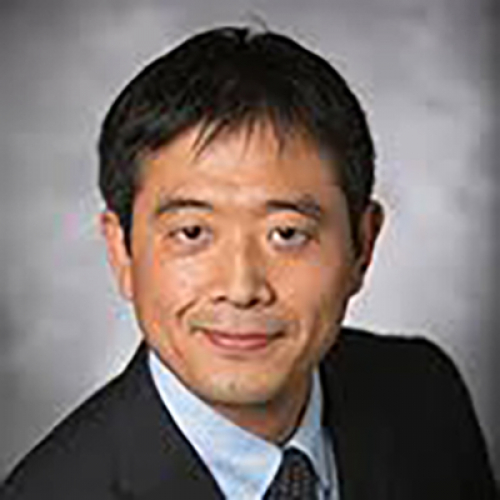
Satoru Osuka, M.D., Ph.D., Department of Neurosurgery
Satoru Osuka, M.D., Ph.D., joined the Department of Neurosurgery as an Assistant Professor on Sept. 26.
Osuka joined UAB in 2019 as an Assistant Professor in the lab of Erwin Van Meir, Ph.D. He was recently awarded an NCI K22 Grant and then promoted to a tenure-earning position with his own lab. He served as a postdoctoral fellow in Van Meir’s lab at Emory University from 2014-2019. Before coming to the U.S., Osuka completed his M.D. and Ph.D. and his residency at the University of Tsukuba.
Osuka has extensive experience in neuro-oncology, neurosurgery, and bioinformatics analysis and has made many original contributions with his colleagues in this area. His lab focuses on the cellular and molecular biology of adaptive therapeutic resistance in brain tumors.
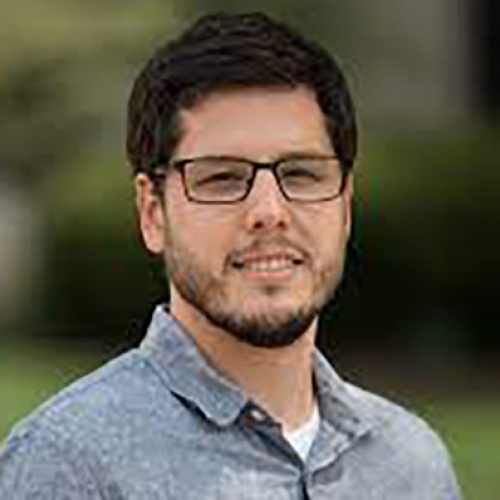
Daniel Tyrrell, Ph.D., Department of Pathology
Daniel Tyrrell, Ph.D., joined the Department of Pathology, Division of Molecular and Cellular Pathology, as an Assistant Professor on Aug. 15.
Tyrrell received his Ph.D. in Integrated Physiology and Pharmacology from the Wake Forest School of Medicine before completing postdoctoral training as a research fellow in the University of Michigan’s Department of Cardiology. During his postdoctoral training, Tyrrell published how aging leads to vascular mitochondrial dysfunction and inflammation, enhancing atherosclerosis in a mouse model. Tyrrell’s research interests include aging, inflammation, mitochondria, vascular dementia, atherosclerosis, mitophagy, vascular disease, immunology, senescence, and neurodegeneration.
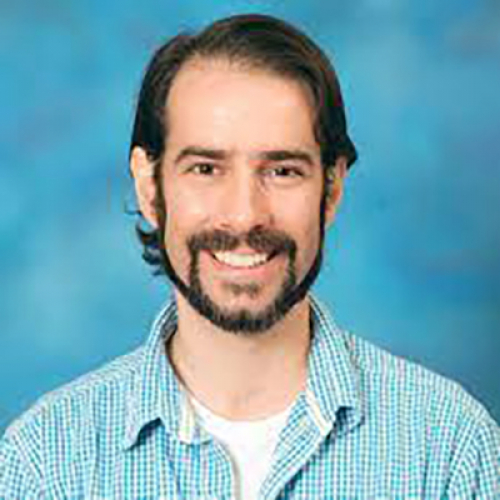
Dario Vitturi, Ph.D., Department of Pathology
Dario Vitturi, Ph.D., joined the Department of Pathology, Division of Molecular and Cellular Pathology, as an Assistant Professor on Aug. 1.
Originally from Montevideo, Uruguay, Vitturi obtained his Ph.D. at UAB. Upon completing his graduate studies, Vitturi joined the Department of Pharmacology and Chemical Biology at the University of Pittsburgh, first as a postdoctoral associate under the direction of Bruce Freeman, Ph.D., and then as a faculty member. Having successfully established an independent research program, Vitturi has returned to UAB.
Vitturi’s research focuses on how biological systems harness the generation of reactive species to modulate cell signaling pathways and maintain physiological homeostasis. He has applied his expertise to pathological conditions such as sickle cell disease, acute and chronic renal injury, and cardiac arrest, both at the pre-clinical and clinical levels.
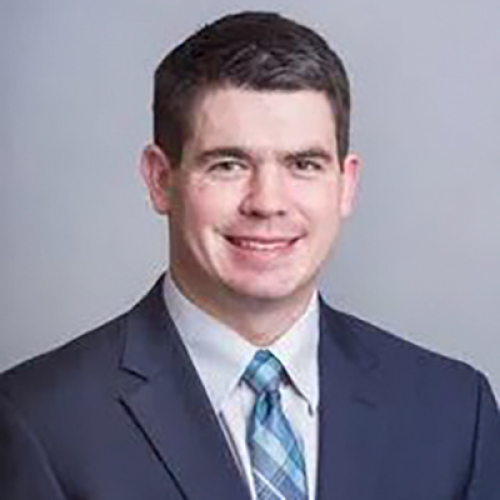
James Odum, M.D., Department of Pediatrics
James Odum, M.D., joined the Department of Pediatrics, Division of Pediatric Critical Care, as an Assistant Professor on July 1.
Odum earned his medical degree from the University of Kansas School of Medicine. Odum completed his pediatric residency and served as chief resident at Children’s Mercy Hospital in Kansas City. He completed his pediatric critical care fellowship at Cincinnati Children’s Hospital Medical Center. His primary research includes sepsis, acute kidney injury, precision medicine, medical education, and children with medical complexity.
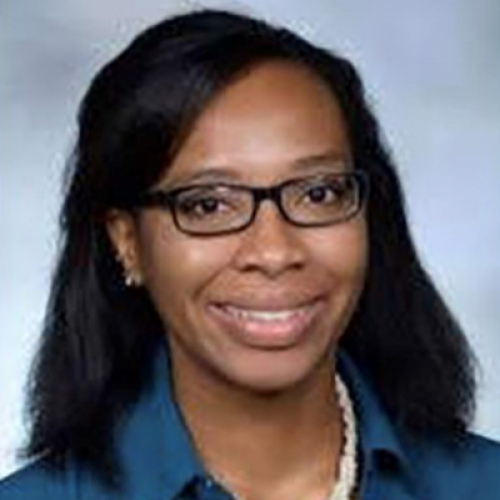
Lece Webb, M.D., Department of Pediatrics
Lece Webb, M.D., joined the Department of Pediatrics, Division of Pediatric Critical Care, as an Assistant Professor on July 1.
Webb earned her medical degree from the University of Louisville and completed her pediatric residency at the University of South Carolina School of Medicine Greenville. She completed her pediatric critical care fellowship at UAB. Her primary research interests include health disparities and the impact of social determinants of health on critical illness.

Chinenye Dike, M.D., Department of Pediatrics
Chinenye Dike, M.D., joined the Department of Pediatrics, Division of Pediatric Gastroenterology, Hepatology, and Nutrition, as an Assistant Professor on Aug. 1.
Dike earned her medical degree from Abia State University Faculty of Medicine. Dike completed her pediatric residency at Children’s Hospital of New Jersey at Newark Beth Israel Medical Center and her fellowship in pediatric gastroenterology at the University of Iowa.
Before joining the Department of Pediatrics, she was on faculty at the University of Nebraska Medical Center in the Division of Pediatric Gastroenterology. Her clinical interests include pancreatitis, exocrine pancreatic insufficiency, and nutrition and her primary research interests include nutritional deficiencies, gut dysbiosis, and pain outcomes in sickle cell disease.
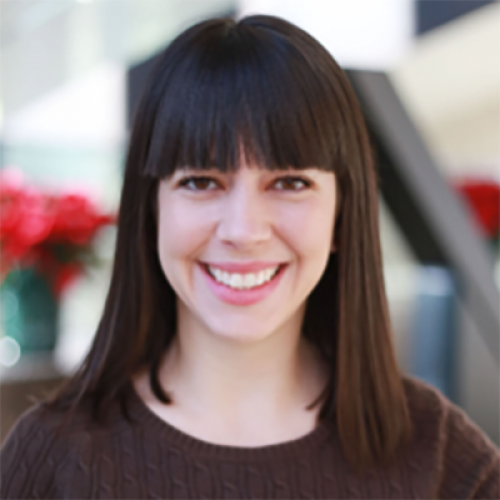
Elizabeth Lucas, Ph.D., Department of Psychiatry and Behavioral Neurobiology
Elizabeth Lucas, Ph.D., joined the Department of Psychiatry and Behavioral Neurobiology as an Assistant Professor on July 1.
Lucas’s interdisciplinary research seeks to elucidate the neurobiological mechanisms underlying affective disorders, such as post-traumatic stress disorder, anxiety disorders, and depression, with careful consideration of sex as a biological variable. Lucas is committed to discovering the specific mechanisms driving sex differences in brain and behavior, not simply reporting that differences exist. She plans to implement a multidisciplinary systems-based approach via collaboration with colleagues.
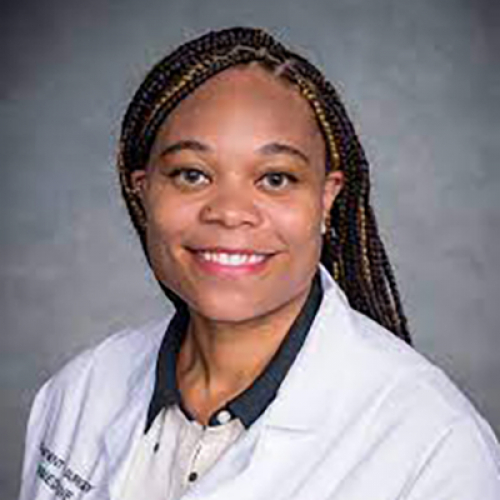
Andrea Gillis, M.D., Department of Surgery
Andrea Gillis, M.D., joined the Department of Surgery as an Assistant Professor on Sept. 1.
Gillis is a board-certified general surgeon receiving her M.D. from Columbia University and completing a surgical residency at Albany Medical Center. She completed an endocrine surgery fellowship training at UAB. Her clinical interests include thyroid cancer, benign thyroid disease, hyperparathyroidism, adrenal disease, and surgical treatment of inherited endocrine syndromes.
Gillis is a health outcome disparities and translational science researcher working in epigenetics, specifically examining differences in gene expression in neuroendocrine tumors by race. She desires to improve the outcomes of all patients, including those from minority and underserved backgrounds.
